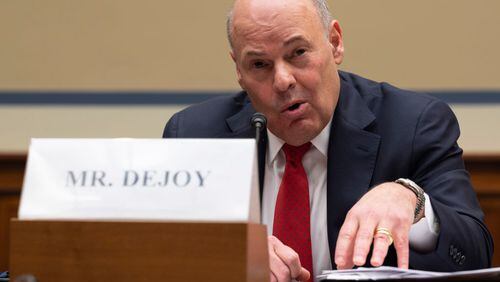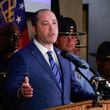Atlanta has a problem with housing affordability. The city’s new mayor, Keisha Lance Bottoms, campaigned on spending $1 billion to address the problem.
A fat lot of good even that large a sum will do, though, if the biggest threat to affordability isn’t solved in a very real way.
Recall last summer, when homeowners across Fulton County felt ill at the sight of their property reassessments. About half saw their assessments rise by at least 20 percent. For about a quarter, the increase was more than 50 percent. (Full disclosure: This Atlanta homeowner’s assessment rose by almost 150 percent.)
County commissioners froze values at 2016 levels, a politically popular but legally questionable maneuver. In any case, the freeze was never going to last beyond 2017. It will take a permanent solution to keep homeowners from getting slammed with an even bigger increase this year.
Legislators for cities in north Fulton have already sprung into action, working on a bill to cap the amount of increase homeowners can face in a single year to 3 percent or the rate of inflation, whichever is lower. The key, says Rep. Jan Jones, R-Milton, is not just to keep property taxes lower than they might otherwise be, but more predictable as well.
“When a purchaser decides to buy a house, they know how much their income is, and how much their mortgage and taxes will be, and can decide, ‘I can afford that,’” Jones says.
But she and other north Fulton lawmakers can only touch the portions of the tax levied by their cities and the county school system. They can’t do it for Atlanta or its school system since they don’t represent that city.
I’m told the Atlanta delegation is working on a similar bill. Here’s why it’s imperative they succeed.
First is just a matter of need. A map of the largest percentage increases in the county last year shows the most concentrated areas of soaring assessments were in Atlanta. And not just in the high cotton of Buckhead: Huge swaths of southwest Atlanta in particular saw increases of 30 percent, 40 percent, even 50 percent or more.
As a matter of principle, it’s abominable that many residents might have to sell their homes because of their tax bills. Unlike other taxes, one’s property tax is based largely on others’ decisions. Here’s what I mean: If I buy more goods, I pay more sales tax. If I earn more money, I pay more income tax. Those are choices I made. But if my neighbor sells his house for a lot more than I paid, my own property taxes may increase, even if I have no more money than before.
But the more immediate problem is that matter of housing affordability.
It’s bad enough that it’s harder and harder for middle-income folks to find homes in Atlanta they can afford — especially homes in good school zones. Relatively affordable areas also are often the very places where home prices are likely to rise the most. That can render a once-affordable home unaffordable.
What good will it do Atlanta to spend $1 billion on affordable housing if soaring property assessments force even more residents to flee the city? Remember, the near suburbs in most cases already have lower millage rates. If they also are willing to cap how fast assessments can rise, they’ll become even more attractive.
Of course, that will create other problems, from a further hollowing out of the city’s middle class to the need to spend even more on transportation infrastructure to handle even more people with long commutes. The attendant costs would quickly dwarf any lost revenue from a cap.
If Atlanta is to make the city a more affordable place to live, recognizing the need not to tax people out of their homes is the best place to start.
About the Author





